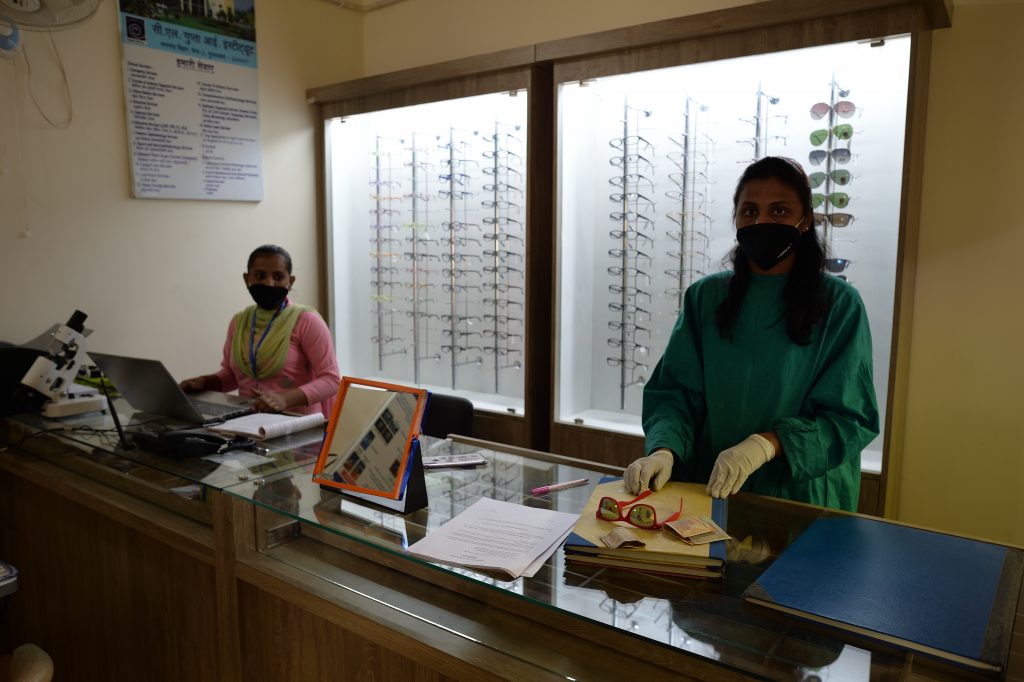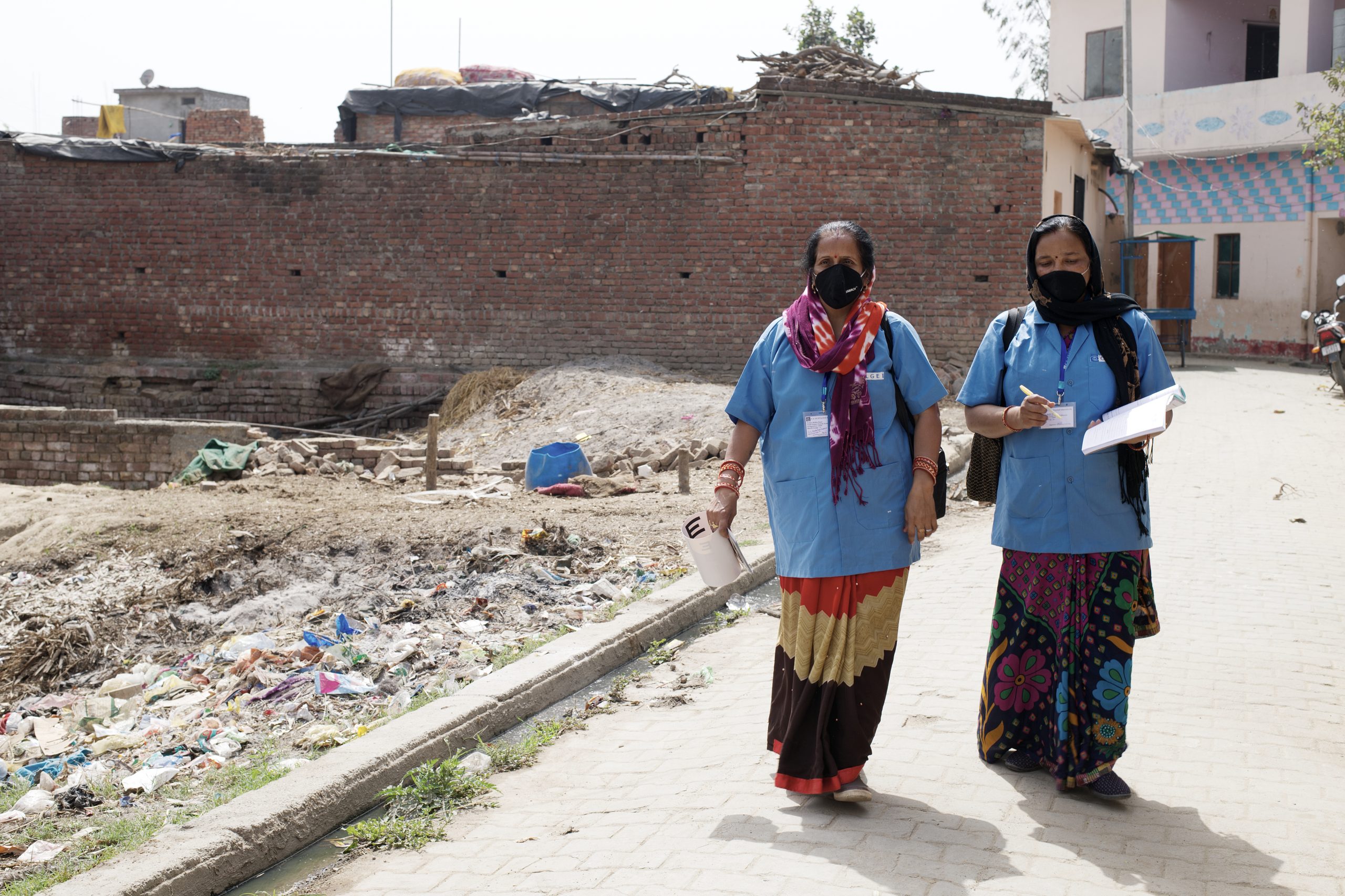Today, nine-year-old Aaliya from the village of Vallabhnagar in Rajasthan can go to school and play with her friends – but it wasn’t always this way.
Failing vision from the age of three meant the gradual loss of sight in her right eye. Aaliya’s family took her to several hospitals seeking treatment, but these efforts were in vain; Aaliya could get neither diagnosis nor treatment.

It wasn’t until an Operation Eyesight community health worker met the family during a door-to-door screening that Aaliya was directed to one of our local vision centres, where she was diagnosed with a squint. Also called a strabismus, this condition causes the eyes to point in different directions. If not treated early enough in life, squints can cause vision to be blurry or doubled and can impact how eyesight develops during childhood.
Aaliya was referred to our partner hospital, Alakh Nayan Mandir, for further treatment. She received prescription eyeglasses and over a number of months, received patching on alternate eyes to treat her eye condition. Doctors told her family that without proper and timely treatment, Aaliyah would have lost her vision.
“We never expected such an improvement in her vision,” says Aaliya’s father, Yusuf. “We are delighted.”
By partnering with hospitals and establishing a local presence in communities, we are strengthening India’s health system and making eye health care a standard part of primary health care. This approach allows us to bring quality eye care to patients like Aaliya, who were previously unable to access these services, as well as connect them with their local health system.

Sustainable impact
In the last six years, we have established more than 140 vision centres across India that provide eye exams, dispense prescription eyeglasses and refer patients to hospital for specialized treatment if needed. These self-funding facilities are established in accessible locations and staffed by trained eye health personnel.
Blindness and visual impairment are major public health issues in India, which is home to more than 20 per cent of those who are blind or visually impaired worldwide. The good news is 90 per cent of blindness and visual impairment is treatable or preventable.
Through the support of our donors and partners, in 2021 we referred nearly 150,000 patients for sight-saving surgery in India and provided nearly 160,000 pairs of prescription eyeglasses to patients who would not otherwise be able to afford them.
“A key part of our success is investment in infrastructure and training,” explains Troy Cunningham, our Country Director for India. “By training staff to deliver primary eye care and equipping facilities with the tools they need, we are ensuring the sustainability of our impact, long-term. We believe this approach can be replicated in states across India and are working with state governments to achieve this.
Building local expertise
We also recruit and train hundreds of female community health workers, who who provide door-to-door eye health screening in target communities. These local eye health champions identify patients requiring care or referral to hospital. They also provide health counselling and education regarding various health issues, including maternal and child health.

Remaining present in the community this way allows us to deliver eye health care that is truly integrated, because it’s eye care that is preventive, provides treatment and follow-up care for all eye conditions. This integrated approach to eye care allows us to focus on the individual needs of patients and families.
Delivering on the UN’s mandate
By focusing on gender equality, promoting health and access to health services and bringing clean water and sanitation, we are also helping end poverty and the root causes of blindness. Together, we are helping achieve the UN Sustainable Development Goals (SDG).
The Government of India’s “Ayush Bharat” program aims to provide free access to healthcare to 500 million people nation-wide. While eye care is included in this program, many gaps still exist which prevent many Indians from accessing quality eye care.
By supporting policy development on eye health, establishing referral pathways, training staff and establishing facilities, Operation Eyesight is playing a key role in shaping India’s health system. Thanks to our partnership with state governments in Arunachal Pradesh and Madhya Pradesh, our primary eye care program is making eye care a key part of local primary health care in these regions.
“We are focused on strengthening existing health systems as well as equipping communities to look after their own eye health long-term,” explains our Global Director of International Programmes Vikas Gora.
“Eye care is primary care – thanks to our donors and partners who make our work possible, we are making this a reality in India.”
Donate today and become part of our work in India.

